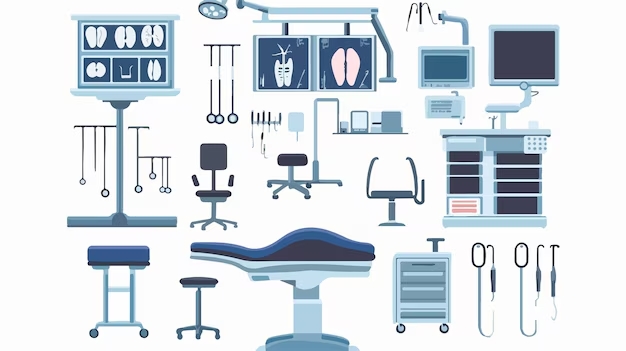Navigating Challenges and Opportunities
The Indian medical device industry, a critical healthcare sector component, is facing significant challenges in light of
proposed zero-duty imports under the EU-India Free Trade Agreement (FTA). While this move aims to enhance trade relations, it has sparked concerns among
local manufacturers about its implications for their competitiveness and
sustainability. In this blog, we will explore the industry’s pushback against
these imports, the potential economic impact, and the role of the Indian nexus
in navigating these challenges.
The Context: Zero-Duty Imports Under the EU-India FTA
The EU-India FTA seeks to enhance trade by eliminating
tariffs on various goods, including medical devices. While the intention is to
lower costs and improve access to medical technologies, local manufacturers
argue that such a policy could jeopardize their operations. The influx of
low-cost imports may undercut local prices, potentially driving many smaller
firms out of business and reducing the overall capacity of India’s medical
device sector.
Concerns of Local Manufacturers
Local manufacturers have raised several concerns regarding
the proposed zero-duty imports:
- Price
Competition: With zero-duty imports, European manufacturers can sell
their products at significantly lower prices, creating a competitive
disadvantage for Indian companies. This could lead to reduced market share
and profitability for local manufacturers.
- Quality
Standards: There is apprehension that lower-priced imports may not
adhere to the same quality standards expected from domestic products. This
could undermine the reputation of the Indian medical device industry and
pose risks to patient safety.
- Employment
Impact: The potential decline of local manufacturers due to increased
competition could result in job losses within the sector, further
exacerbating economic challenges in regions dependent on the medical
device industry.
- Innovation
Stifling: An import surge may discourage local innovation, as
companies may focus on survival rather than investing in research and
development for new technologies.
The IndianNexus: Collaboration for Strength
In response to these challenges, the Indian nexus—a network
of industry stakeholders, government agencies, and research institutions—plays
a crucial role in advocating for the interests of local manufacturers. This
collaborative effort aims to address the concerns surrounding zero-duty imports
by:
- Policy
Advocacy: Engaging with government bodies to negotiate terms that
protect local industries while still promoting trade.
- Industry
Collaboration: Fostering partnerships between manufacturers to share
best practices, enhance competitiveness, and promote local products.
- Research
and Development: Encouraging investment in R&D to innovate and
improve the quality of Indian-made medical devices, thereby boosting their
competitiveness in both domestic and international markets.
Future Directions
As discussions around the EU-India FTA continue,
stakeholders in the Indian medical device industry need to unite and voice
their concerns effectively. By leveraging the Indian nexus, manufacturers can
advocate for policies that balance trade benefits with the protection of local
industries.
Additionally, focusing on enhancing the capabilities of
Indian manufacturers through skill development and technological advancements
can help mitigate the risks posed by zero-duty imports. By investing in local
talent and innovation, the Indian medical device industry can not only survive
but thrive in a competitive global landscape.
Conclusion
The pushback from the Indian medical device industry against
zero-duty imports under the EU-India FTA highlights the complexities of
balancing trade relations with local economic interests. Through collaboration
within the Indiannexus and
a commitment to innovation, the industry can navigate these challenges
effectively, ensuring that it remains a vital player in the healthcare
landscape. Policymakers must listen to these concerns and work
towards solutions that foster growth without compromising the integrity of
local manufacturing.











